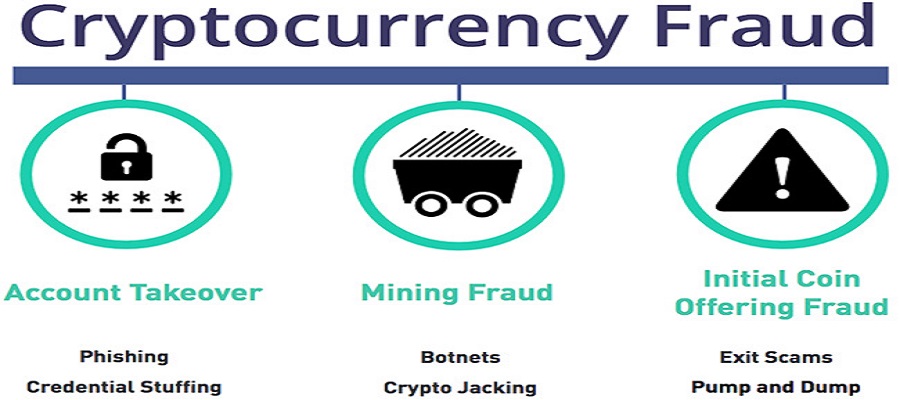E-Financial
PAFON 1.0: Experts Harp on Stricter Data Privacy Measures in Payments Ecosystem in AI Era

Mr. Festus Amede, Chairman of the Committee of Chief Information Security Officers of Nigerian Financial Institutions (CCISONFI) has identified Data Minimization Principles, User Consent and Control, as well as Compliance with Privacy Regulations as important elements in protecting privacy in payments.

L-R: Olusola Odediran, Chief Information Security Officer, NIBSS/representative of Chairman, Committee of Chief Information Security Officers of Nigerian Financial Institutions; Chike Onwuegbuchi, co-founder, TechCastle Foundation; Adekunle Ajayi, Product Manager, Cloud and Digital Solutions, inq. Digital Nigeria Ltd; Abidemi Akinola, Chief Compliance Officer, Remita; Efemena Ogie, Head, Partnership, Monipoint Inc., and Peter Oluka, Editor, Techeconomy, during, the Payments Forum Nigeria (PAFON 1.0) event on, ‘Payments: Trust, Security and Privacy in AI era’ held in Lagos recently.
Amede who was represented by an executive member of CCISONFI, Mr. Olusola Odediran (also, the Chief Information Security Officer) Nigeria Inter-Bank Settlement System (NIBSS), spoke during his keynote presentation at the maiden edition of Payments Forum Nigeria (PAFON 1.0) held at Oriental Hotel, Lagos on Thursday.
His presentation themed, ‘Payments: Trust, Security and Privacy in the AI Era,’ explored the critical aspects of trust, security, and privacy in payments, and provided insights into the challenges, solutions, and future trends in safeguarding transactions in the digital landscape.
The CCISONFI chairman stated that although the payment industry enjoys such regulatory oversights arising from the Nigerian Data Protection Act (NDPA) and Data protection laws, the Payment Card Industry Data Security Standard (PCI DSS), and the compliance requirements for businesses, the industry has balanced security and convenience relying on user experience in payment security, seamless authentication methods, and biometric and tokenized payments.
On how emerging Technologies will impact the payment industry, he disclosed that while Blockchain will be deployed to ensure secure transactions, Artificial Intelligence and Machine Learning will be used in fraud prevention even as privacy-preserving computing impact cannot be underestimated.
Amede called on players in the payment industry to continue to educate consumers by providing them with tips on how to secure online payments, how to recognise phishing attempts, and the importance of keeping software updated.
He listed some of the best practices for businesses including regular security audits and penetration testing; employee training on security protocols; and ensuring collaboration with payment security experts.
Speaking further on the need to build trust in payment systems, Amede, who is also the CISO of Zenith Bank Plc emphasised the importance of trust for consumer adoption, transparency in transactions, and commitment to securing the payment infrastructure.
He stated that the Payment Systems are exposed to such threats and vulnerabilities as Cyber Attacks and Data Breaches, Phishing and Social Engineering, and malware and ransomware.
Ikenna Ndugbu, the chief compliance officer, represented by Isoken Aigbomian, the regional sales Manager, Moniepoint, highlighted the evolution of Moniepoint into a leading payment processor, stating, “We started off with a virtual account service where we automated payments or transfers, allowing customers and businesses to make and receive payments seamlessly through transfers. This was what catapulted and was modified into the limelight and household name that seems to be.”
Aigbomian emphasized the company’s focus on providing flexible payment options to businesses across various sectors, stating, “Today, Moniepoint offers a wide variety of payment options to businesses. There is an online payment platform, in-person payments option and then there are the cash payments via our ATM network, which is almost, I think, one of the largest, as well.”
She explained how Moniepoint MFB identified the need for a seamless payment experience and developed innovative solutions to address it. “So, what we did was we looked inward, and we said the most popular means of payment in Nigeria is transfer. So we worked with our engineers and were able to build an infrastructure.”
Roosevelt Elias, the founder of Payble, noted the importance of data privacy and security in the age of digital payments, stating, “It is essential to preserve the details of such trusted transactions, as they often hold significant importance for the company’s outcomes and operations.”
He endorsed cautious use of data and highlighted the need for AI encryption and compliance-based companies to protect user privacy and ensure regulatory compliance.
On the other hand, Peter Evbota, sales director at inq. Digital Nigeria Limited, spoke on artificial intelligence (AI) and its ability to transform sectors, particularly in data analytics and security.
He emphasized the power of AI in processing both structured and unstructured data, highlighting its ability to detect patterns and provide valuable insights.
Earlier in his welcome address, Mr. Chike Onwuegbuchi, co-founder of TechCastle Foundation, organisers of the event, while giving insight into why the forum was berthed, said payments are very critical in the economy of every country including Nigeria.
“Last year, before the elections, we witnessed what Nigerians faced in the payments system- ATMs were not working to dispense cash, and at merchant locations, it was difficult to make payments with banks’ PoS thanks to Moniepoint and few others that came to the rescue,” he said.
Onwuegbuchi noted that there had been issues of declined transactions and customers’ accounts debited, in addition to an existing systemic fraud, misinformation and lack of information that have led to customers losing their money to fraudsters.
“After looking at these issues and many more, we at TechCastle Foundation decided to create a platform where stakeholders could discuss these issues with the objective of making our Payments systems better,” he said.
He stated that the essence of the forum was to make the ecosystem better for every Nigerian as operators, regulators and end users are expected to discuss to find a way to make the system better.
He added that trust issues in payments, security and other industry-related issues were to be discussed at the forum by cybersecurity experts who have distinguished themselves in working with money deposit banks to ensure that cybercriminals didn’t steal money in the bank.
The inaugural edition of the Payments Forum Nigeria was a cross-industry platform that focused on addressing issues that require broad cooperation and coordination across many constituents in the payments industry.
PAFON 1.0, sponsored by Moniepoint, Digital Encode Limited, Cybervergent, inq.Digital and Payble with support from the Central Bank of Nigeria (CBN), provided participants with an inside look at the Payments industry, offering perspectives from key stakeholders, including payment networks, technology innovators, leading merchants, issuers, acquirers, and payment processors.
E-Financial
Secret Service Seizes $400M in Crypto, Cold Wallet among World’s Largest

US Secret Service has quietly seized nearly $400 million in digital assets over the past decade, amassing one of the world’s largest crypto cold wallets, Bloomberg reported at the weekend, citing people familiar with the matter.

The agency’s Global Investigative Operations Center (GIOC) has tracked funds through open-source tools, blockchain analysis, and patience, Jamie Lam, an investigative analyst with the US Secret Service, reportedly told law enforcement officials in Bermuda last month.
The agency’s crypto trove, much of which sits in a single cold-storage wallet, results from a string of investigations into scams. Scammers lure targets into seemingly legitimate crypto investment platforms in one typical scheme.
Victims often see initial profits before the sites vanish with their deposits.
“That’s how they do it,” Lam said. “They’ll send you a photo of a really good-looking guy or girl. But it’s probably some old guy in Russia.”
Lam’s team uses domain records, blockchain transactions, and VPN slip-ups to identify fraudsters. In one case, a cryptocurrency payment led investigators to another wallet. In another one, a brief VPN failure exposed an IP address, helping agents piece together the scam’s digital trail.
At the helm of the Secret Service’s crypto strategy is Kali Smith, who directs a team that has trained officials in over 60 countries to unmask online financial crimes.
The agency has focused on jurisdictions with weak oversight or programs selling residency to foreign nationals. “Sometimes after just a week-long training, they can be like, ‘Wow, we didn’t even realize that this is occurring in our country,’” Smith said.
The Secret Service’s work has uncovered scams ranging from romance-investment schemes to sextortion cases. One investigation involved an Idaho teenager who sent a nude photo to an online stranger. The scammer extorted $300 twice before the teen went to the police.
Analysts traced the payments through another coerced teenager acting as a money mule, leading to an account tied to nearly $4.1 million in transactions under a Nigerian passport.
British police arrested the suspected extortionist when he arrived in Guildford, England, where he remains in custody pending extradition.
E-Financial
Ascensia Finance Commences Operations in Abuja

Ascensia Finance Company has officially commenced operations to provide financial intermediation services in Abuja.
Licensed by the Central Bank of Nigeria (CBN) in April, the financial institution aims to support individuals and small businesses through customised financial solutions delivered via efficient and accessible channels.

It offers a broad range of services, including loans, investment products, and financial advisory services tailored to meet the evolving needs of its customers.
In a statement, Mr. Jude Ezeami, Managing Director/Chief Executive, Ascensia, stated that proud member of the Finance House Association of Nigeria (FHAN), and in partnership with the Nigeria Interbank Settlement System Plc (NIBSS) and Remita, the company is leveraging strong institutional relationships and digital infrastructure to offer reliable financial services.
He said, “At Ascensia, we are committed to the growth of our clients by delivering inclusive, customer-centric financial services that empower individuals and small businesses to thrive.
“Our suite of products is designed to address the financing needs of Nigerians — whether through accessible personal loans, business financing, or innovative investment solutions.”
He said with the company’s strong foundation, experienced leadership, and a deep understanding of the local market, Ascensia remained poised to become a key player in Nigeria’s financial services industry.
The company is driven by a team of seasoned professionals with extensive experience in Nigeria’s resilient financial services sector.
Anchored on the core values of Trust, Resilience, Integrity, Creativity, and Empathy (TRICE), the company introduced a suite of innovative financial products.
These include personal loans of up to N5 million for self-employed professionals, with a repayment tenor of up to 12 months.
The company also provides SME loans of up to N10 million, specifically designed to support shop owners and small business operators engaged in trade of fast-moving consumer goods, with financing available for inventory and working capital needs.
The Ascensia PayEasy, a “Buy Now, Pay Later” solution, enables individuals and companies to acquire consumer goods or assets with a minimum 30 per cent deposit, and repay the balance over a six-month period.
For salaried employees in both the public and private sectors, the company offers PayDay Loans of up to ₦5 million, repayable over 12 months.
Through its Contract Finance offering, Ascensia supports vendors, suppliers, and contractors working with credible companies, NGOs, and public-sector agencies.
The product facilitates timely order fulfilment and improves liquidity by providing early access to funds through invoice discounting on confirmed invoices from approved counterparties.
The company also offers group loans for traders, artisans, farmers, and producers of fast-moving goods.
These loans are structured around group-based cross-guarantees, making financing accessible to individuals with strong cash flows but limited collateral. Eligible borrowers can access up to N3 million, repayable within 180 days.
E-Financial
CBN Sets Record Straight on Diaspora BVN Fee, Confirms No Hidden Charges

Central Bank of Nigeria (CBN) has addressed growing concerns surrounding the newly introduced Non-Resident Bank Verification Number (NRBVN) platform, firmly stating that there are no hidden charges and that BVN enrolment for Nigerians residing within the country remains entirely free.

Speaking in Abuja, the bank’s acting director of corporate communications, Mrs. Hakama Sidi Ali, explained that the fee recently reported in the media applies solely to Nigerians living abroad who choose to enrol through the NRBVN platform.
She clarified that the approximately $50 charge is not a fee for obtaining a BVN, but a recoverable processing cost tied to remote biometric and due diligence verification.
Mrs. Sidi Ali highlighted that the charge supports secure identity authentication, data management, and the technological infrastructure needed to facilitate the overseas enrolment process.
She noted that Nigerians in the diaspora previously paid up to $200 for the same service, and the current fee reflects a reduction designed to enhance accessibility.
“The associated fee of $50 is strictly a processing charge for remote verification and not a payment for the BVN itself,” she stated. “The NRBVN system is a voluntary, secure, and convenient solution for Nigerians in the diaspora.”
She dismissed reports circulating on social media as misleading and inaccurate, advising the public to disregard claims that suggest the imposition of new or excessive charges on Nigerians. The NRBVN platform, she stressed, is a critical part of the CBN’s digital transformation strategy aimed at extending financial services to Nigerians globally.
Developed in collaboration with the Nigeria Inter-Bank Settlement System (NIBSS), the NRBVN platform enables Nigerians overseas to obtain a BVN without physically visiting a bank branch in Nigeria. The remote system facilitates access to banking services, reduces travel costs, and supports secure transactions in line with international standards of digital identity management.
Mrs. Sidi Ali encouraged the public to seek information about the NRBVN initiative only through official channels of the CBN and NIBSS.

 Telecom1 day ago
Telecom1 day agoY’ello Care’s 21-Day Campaign Bridges Digital Divide for Thousands Nationwide

 General News1 day ago
General News1 day agoEnugu Air Commences Operations Today

 E-Business1 day ago
E-Business1 day agoGalaxy Backbone, Rural Electrification Agency Commit to Deepening Digital and Energy Access Across Nigeria

 Broadcasting1 day ago
Broadcasting1 day agoNDPC Slaps Multichoice with ₦766M Fine for Data Privacy Violations

 News1 day ago
News1 day agoLagos-Calabar Highway Gets $100M Push from ECOWAS to Drive Regional Growth

 Telecom1 day ago
Telecom1 day ago20 Years of Digital Leadership: Layer3’s Legacy and the Road Ahead

 News1 day ago
News1 day agoNBS May Release Rebased Figures for Nigerian Economy July 11

 E-Financial3 hours ago
E-Financial3 hours agoAscensia Finance Commences Operations in Abuja



























